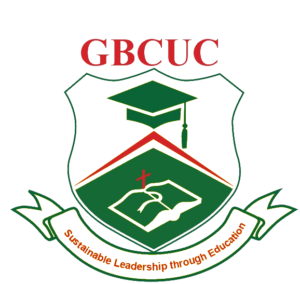
PROGRAM INFORMATION
TYPE: DIPLOMA
DURATION: 3 YEARS
ACCREDITATION: HEA, ZQF LEVEL 6
Diploma in Mathematics and Religious Education
The Diploma in Secondary Teaching Program, focusing on Mathematics Education and Religious Education, responds to the need for educators who can provide a well-rounded and holistic education to secondary school students. Mathematics is a fundamental subject that enhances critical thinking and problem-solving skills, while Religious Education explores questions of faith, morality, and ethics. Combining these two areas equips teachers to foster both analytical and ethical thinking in their students, preparing them for a diverse and complex world.
Program Outline
| YEAR 1 | |
| HPE 41002 | History and Philosophy of Education |
| CSS 41003 | Communication and study skills |
| EPS 41004 | Education Psychology and Sociology of Education |
| ICT 41005 | Information Communication Technology |
| RED 41201 | Religious Education teaching methods I |
| RED 41204 | Religious Education II |
| MED 41101 | Mathematics I |
| MED 41102 | Mathematics teaching methods I |
| YEAR 2 | |
| MED 42101 | Mathematics II |
| MED 42102 | Mathematics teaching methods II |
| RED 42201 | Religious education teaching methods II |
| RED 42204 | Religious Education II |
| STP 42003 | Teaching practice I |
| ERP 42002 | Education Research |
| SGC 42001 | Special education, guidance and counselling |
| YEAR 3 | |
| EED 43001 | Entrepreneurship Education |
| ELM 43002 | Education leadership and management |
| ERR 43003 | Education Research (Research report) |
| STP 43004 | Teaching Practice II |
| RED 43201 | Religious Education teaching methods III |
| RED 43204 | Religious Education III |
| MED 43101 | Mathematics III |
| MED 43102 | Mathematics teaching methods III |
Programme Aims and Objectives
Upon successful completion of the Diploma in Secondary Teaching Program with a focus on Mathematics Education and Religious Education, graduates should be able to:
- Graduates will have an in-depth understanding of both Mathematics and Religious Education, including their theoretical foundations, historical context, and contemporary relevance.
- Graduates will be proficient in designing and delivering engaging lessons in both Mathematics and Religious Education, catering to the varied learning styles and abilities of secondary school students.
- Graduates will be able to create curriculum materials and resources that align with national and regional educational standards, ensuring a well-rounded education for their students.
- Graduates will be skilled in designing diverse assessment methods for Mathematics and Religious Education, as well as adapting their teaching approaches to accommodate diverse learners.
- Graduates will demonstrate effective classroom management techniques to maintain a positive and productive learning environment.
- Graduates will promote inclusivity, respect for diverse cultural backgrounds, and open dialogue in the context of Religious Education, fostering understanding and tolerance.
- Graduates will facilitate discussions on ethical and moral questions in Religious Education, encouraging students to think critically about values, ethics, and belief systems.
- Graduates will equip students with strong mathematical literacy, enabling them to apply mathematical concepts to real-world problems and make informed decisions.
- Graduates will integrate mathematical concepts into the study of religious and philosophical topics, emphasizing the interconnectedness of subjects.
- Graduates will commit to continuous professional development, staying updated on advancements in Mathematics Education and Religious Education and refining their teaching practices.
- Graduates will effectively communicate complex mathematical and religious concepts to students and stakeholders, promoting meaningful dialogue and understanding.
- Graduates will encourage students to explore their own beliefs, values, and the role of religion in society, fostering responsible citizenship and community involvement.
